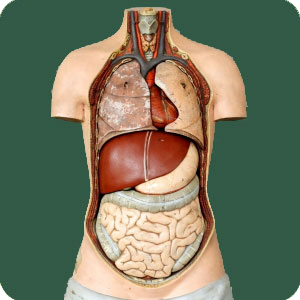recovery basics | pure air & water | nourishing food | restful sleep | exercise | detoxification | non-toxic lifestyle | emotional health | spirituality | energetic health | sexuality | brain/limbic system | dental health | organ health

Organ Health
Below are some tips for supporting specific organs that can sustain damage from toxic environmental injury.
Eyes
• Eat foods/take supplements containing carotenoid antioxidants lutein and zeaxanthin;
• Limit screen/blue light exposure (computer, cell phone, TV, etc.) — if you have to spend a lot of time on the computer, take frequent breaks;
• Use Similasan homeopathic “dry eye” drops to keep eyes lubricated if you have a lot of exposure to blue light and screens, and/or live in an arid climate;
• Use cold and warm compresses on eyes — cold for reducing inflammation and warm for removing bacteria and dead skin cells.
Olfactory Bulb Nerves
• Nerves in the olfactory bulb are some of the only nerves in the body capable of regenerating. Retinoic acid, the oxidized form of Vitamin A, may be helpful; more research is needed.
see also: Olfactory Nerve Recovery Following Mild and Severe Injury and the Efficacy of Dexamethasone Treatment | Rewiring the Olfactory Bulb: Changes in Odor Maps following Recovery from Nerve Transection | Regeneration and Rewiring the Olfactory Bulb | Changes in odor quality discrimination following recovery from olfactory nerve transection
Lung Health
• Diaphragmatic breathing
• Breath meditation
• Oxygen therapy
• Regular Exercise
• Mullein tea or tincture – lung tonic
Lymph Health
• Rebounder
• Regular lymphatic massage
Liver Health
• Dandelion Root Tea
• Dandelion leaves – use in salad
• Milk Thistle – you can buy the seeds and roast
• Polyenylphosphatidylcholine (PPC) – Matthew Hogg of The Environmental Illness Resource says that “Many of our website’s regular visitors have repeatedly talked about how effective polyenylphosphatidylcholine (PPC), a concentrated form of regular phosphatidylcholine (PC), has been in aiding their recovery from multiple chemical sensitivity (MCS) and other forms of EI.” He adds that the polyenyl version is far more concentrated and is the form most often used in medical studies and in phospholipid exchange therapy. It’s also more expensive.
• Castor Oil packs over liver for 30 minutes a day
• Coffee Enemas
• Liver flushes
photo: © Mark Yuill / istockphoto
recommend a healing tool for this page
Note: please check with a qualified health practitioner before incorporating any new tool into your recovery program.





